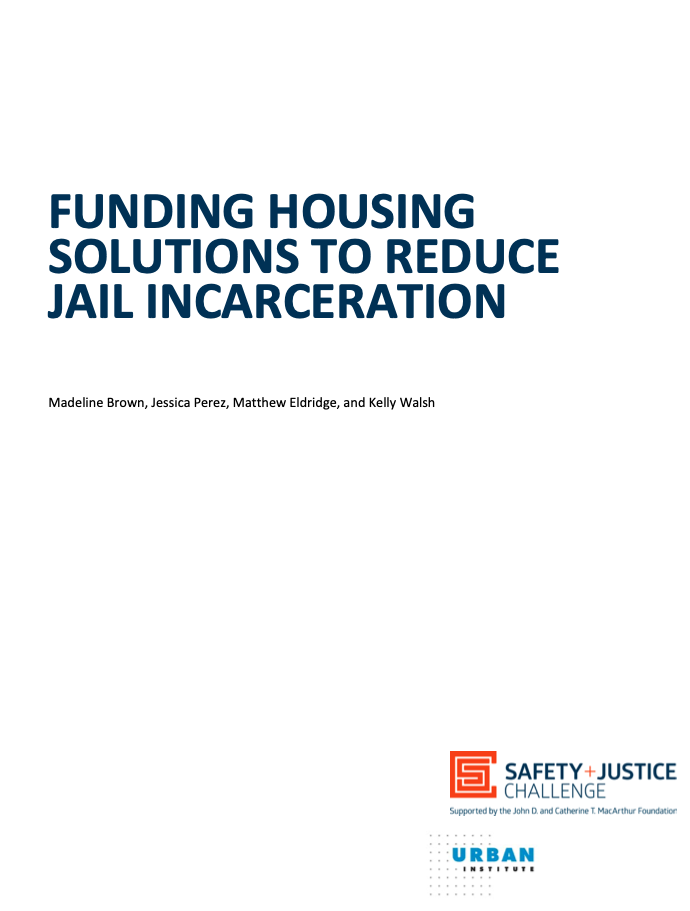Report
Community Engagement Costs Housing November 22, 2021
Funding Housing Solutions to Reduce Jail Incarceration
As counties across the United States search for ways to reduce the oversized and racially disproportionate footprint of our criminal justice system, many are looking upstream—to housing and the evidence that connects it to economic stability and overall well-being. This report presents four approaches to housing programs and policies that show promise to reduce jail incarceration and address structural barriers, as well as funding options for such approaches. The findings are based on an extensive literature review and three private roundtables held in 2020 with practitioners, people with lived experience of jail incarceration, and subject matter experts across housing, behavioral health, and criminal justice sectors. We identified the following investment-ready approaches that should guide the use of resources—public or private—aimed at reducing the impact of the jail system: (1) provide housing without (or with few) conditions, (2) support the whole person to achieve housing stability, (3) fund multiple pathways to promote housing stability, and (4) plan for release before release.
